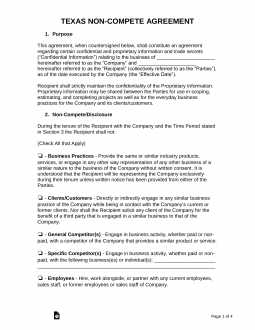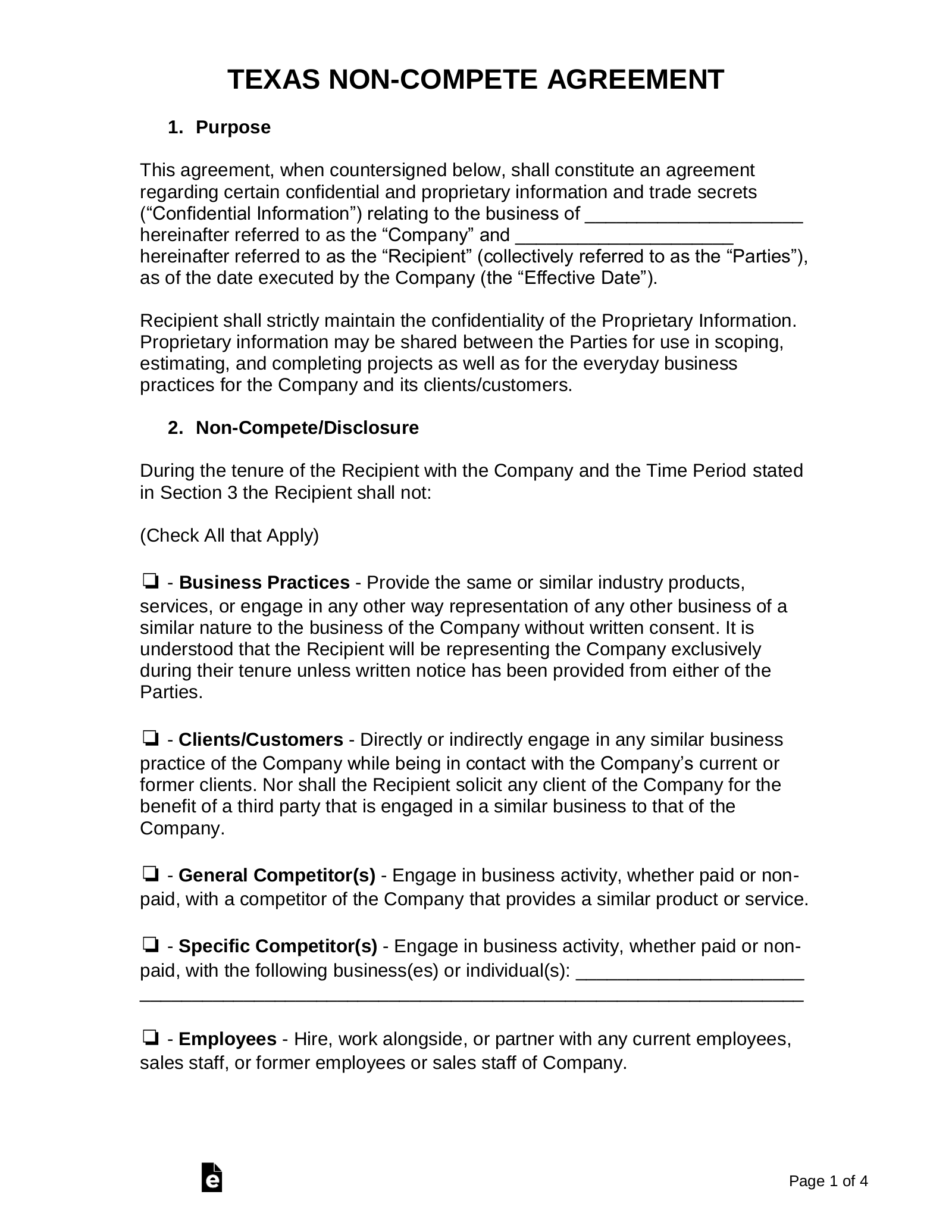Updated February 28, 2024
A Texas non-compete agreement prohibits an employee from engaging in the same business as the employer for a specific time period and geographical area. The employee must agree to a non-compete at the same time an employment contract is signed.
If already employed, an agreement must be supported by additional consideration such as a new position, pay, or increase in benefits.
Laws
Legally Enforceable?
Yes, a non-compete is enforceable under the following conditions:[1]
- Signed at the time of employment. Must be an ancillary to or part of an offer for employment;
- Limitations. The non-compete is made to the extent that it contains limitations as to time, geographical area, and scope of activity to be restrained that are reasonable and do not impose a greater restraint than is necessary to protect the goodwill or other business interest; and
- Restrictions for physicians. If a physician signs a non-compete, the following rules apply:
- Cannot deny access to a list of patients the physician has treated within the past year;
- Must provide access to medical records of the physician’s patients (for a reasonable fee); and
- That any list of patients or medical records is provided in a format agreeable by both the employer and physician.
Attorneys (prohibited)
An attorney cannot participate in any type of relationship or agreement that restricts their right to practice within the State.[2]
Continued Employment
Texas requires that for a non-compete to be valid, it “must be supported by consideration.”[3]
Texas recognizes consideration as a “present exchange bargained for in return for a promise.” Therefore, no matter the training or knowledge gained in the past, it does not constitute sufficient consideration for continued employment.[4]
At-Will Employees
If an at-will employee agrees to a non-compete, such covenant “must be supported by independent valuable consideration.”[3]
Maximum Term
2 to 5 years has been deemed as “reasonable time” by the Court of Appeals.[5]
Geographical Area
A non-compete cannot go beyond the geographical area where the employee worked or where the employer conducted its business.[6]
Blue Penciling
Texas statutes allow for an overbroad non-compete in relation to time, geographical area, or scope of activity to be reformed and made enforceable in accordance with State law. Such rulings will be made when a court deems the restraints to be more than necessary to protect the goodwill of the business.[7]
Past Penalties ($)
3 cases had awarded punitive damages to employers when an employee had violated their non-compete:
Sources
- Sec. 15.50
- 5.06 (Restrictions on Right to Practice)
- Alex Sheshunoff Management Services, L.P. v. Johnson (2006)
- CRC-Evans Pipeline International, Inc. v. Myers (1996)
- Gallagher Healthcare Ins. v. Vogelsang (2010)
- Cobb v. Caye Publishing Group (2010)
- § 15.51(c)
- BDO Seidman v. Hirshberg (1999)
- Cherne Indus., Inc. v. Grounds & Associates (1979)
- Hagerty, Lockenvitz, Ginzkey & Associates v. Ginzkey (1980)


